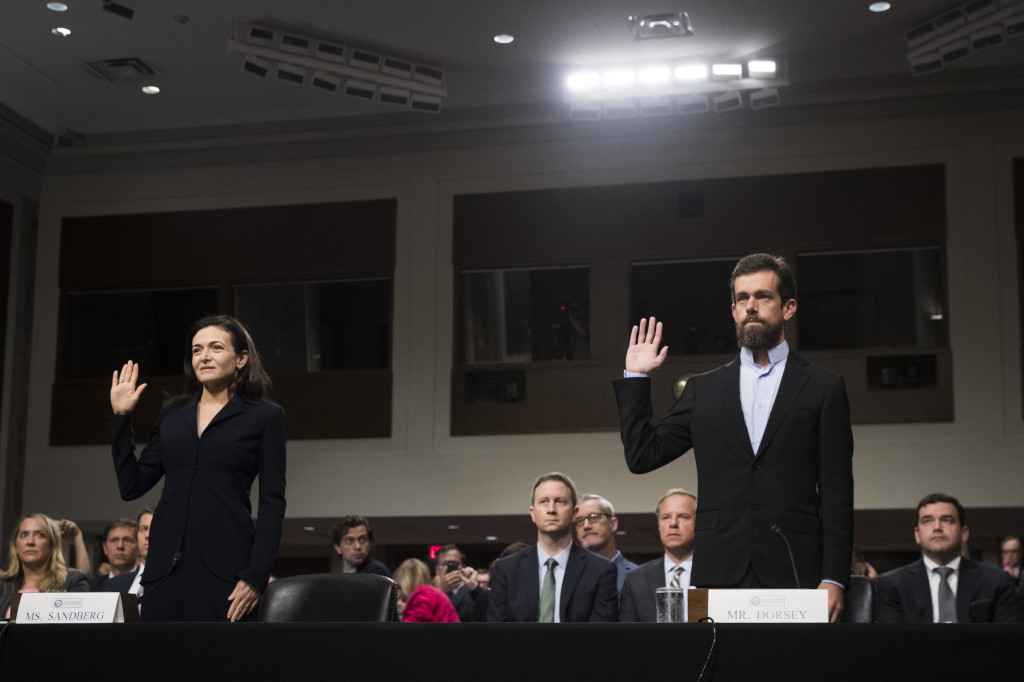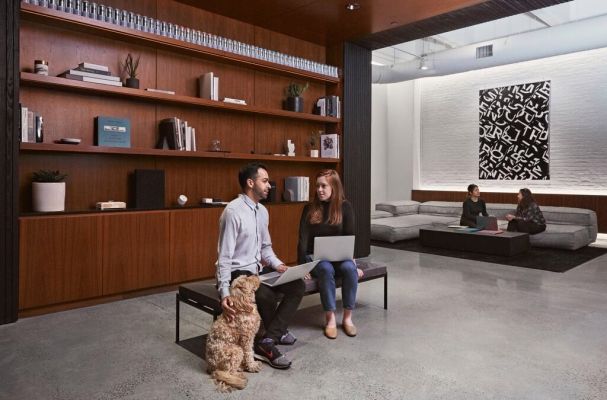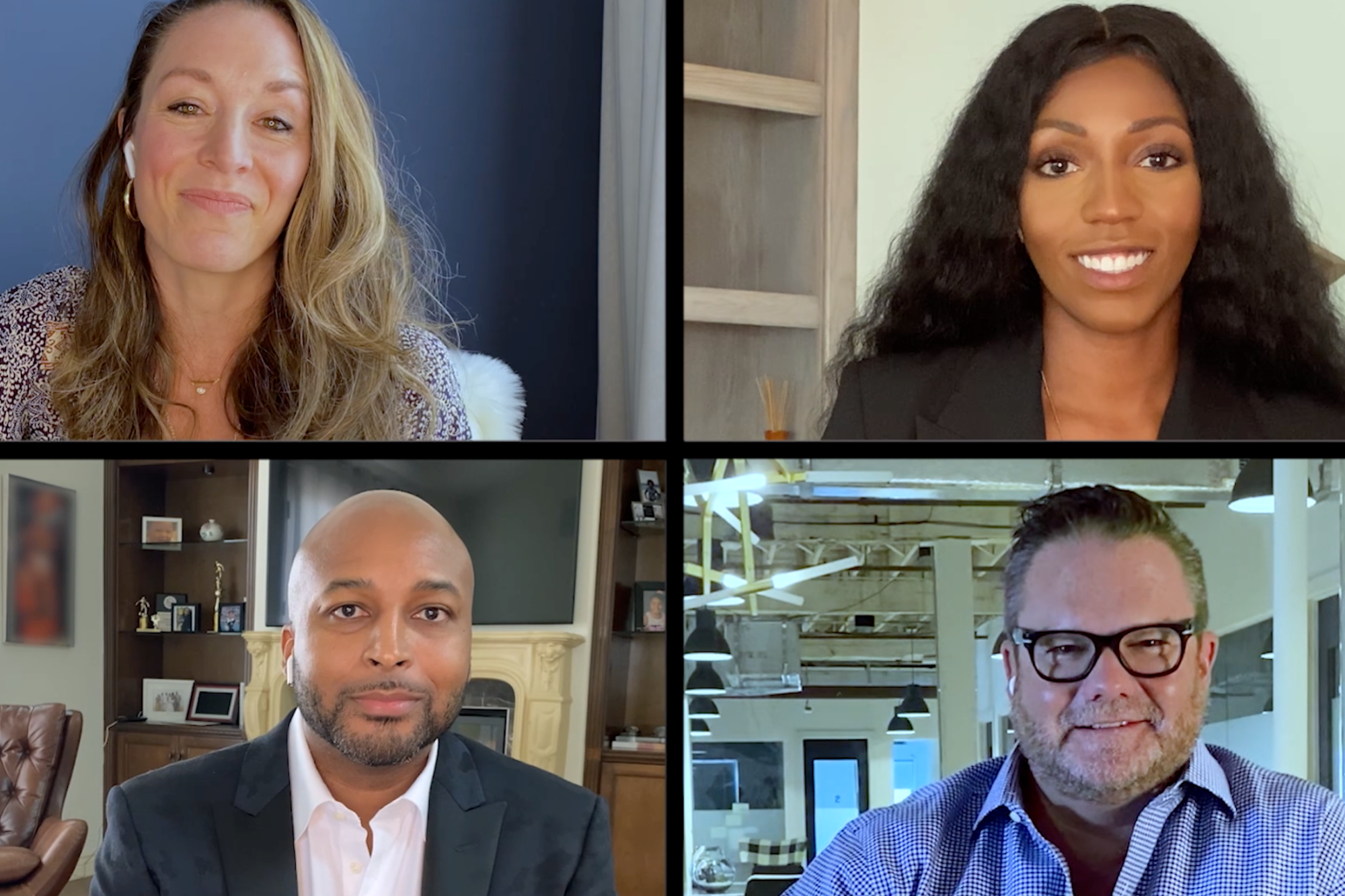As Facebook continues to defend its controversial policy that allows politicians to run false advertising, Twitter said Wednesday it is pulling the plug on political ads altogether.
“We’ve made the decision to stop all political advertising on Twitter globally,” Twitter CEO Jack Dorsey tweeted Wednesday. “We believe political message reach should be earned, not bought.”
The new policy, effective Nov. 22, will apply to candidate and issue ads.
“While internet advertising is incredibly powerful and very effective for commercial advertisers, that power brings significant risks to politics, where it can be used to influence votes to affect the lives of millions,” Dorsey added.
If that sounds familiar, it’s because online misinformation has been shown to have played a key part in the 2016 U.S. presidential race. Dorsey and the top executives of Facebook and Google all have testified before Congress over Russian misinformation campaigns run on their social media platforms, among other things.
Some are cheering Twitter’s move — which could negatively affect its already declining revenue — while also pointing out that the company hasn’t solved its misinformation problem. So far, the company has offered no antidote for politicians who make false statements in their own tweets.
“Rather than taking the Facebook route and letting anarchy ensue, Twitter is taking responsibility,” said Eric Goldman, director of the Santa Clara University School of Law’s High Tech Law Institute. “But it’s still allowing politicians to lie without consequence.”
Goldman said it’s not just about President Trump, whose online megaphone of choice is Twitter.
“Trump is a symptom of the disease,” he said. “The disease is: Politicians will lie if given the chance.” Goldman thinks politicians currently in office shouldn’t be allowed on Twitter or any other platform where they can spread their messages unfiltered.
Twitter’s much bigger competitor, Facebook, has been under fire for refusing to take down an ad by Trump’s re-election campaign that included accusations against former Vice President Joe Biden that have been proven false. Facebook said it does not fact-check political ads and has no intention of doing so.
Facebook CEO Mark Zuckerberg has said the policy is a matter of freedom of expression. During Wednesday’s earnings call, he dug in and pointed out that TV networks and Google run political ads, too. He also said that political ads will bring in only 0.5% of the company’s revenue this year.
People such as Democratic presidential candidate Elizabeth Warren have sharply criticized Facebook’s policy. Warren ran a false ad on Facebook — claiming that the tech company is supporting Trump’s re-election, which it is not — to illustrate her point.
Bernice King, daughter of the late Martin Luther King Jr., also has been critical of Facebook recently because Zuckerberg invoked her father while defending the tech giant’s policy. She tweeted a couple of weeks ago: “I’d like to help Facebook better understand the challenges #MLK faced from disinformation campaigns launched by politicians. These campaigns created an atmosphere for his assassination.” On Wednesday, she tweeted, “Thank you, @jack, for taking the lead on responsible sharing of political ads via social media.”
Last week, Rep. Alexandria Ocasio-Cortez’s questioning of Zuckerberg exposed holes in Facebook’s policy of not checking facts in political ads. When the congresswoman from New York asked the CEO whether she would be able to buy an ad that would target black voters and give them an incorrect election date, he said no. Their exchange has inspired many memes.
In addition, the New York Times this week published a letter sent to Zuckerberg by 250 of his own employees in which they said, “Misinformation affects us all” and “Free speech and paid speech are not the same thing.” It was a rare public show of dissent within Facebook.
One San Francisco man is going as far as declaring himself a candidate for California governor to further highlight Facebook’s policy. He argues that if Trump can run false ads on Facebook, why can’t he?
Adriel Hampton this week registered for the 2022 gubernatorial race, but Facebook has blocked a false ad he tried to run.
“The problem here is regular people in America are being abused by the corporate state,” Hampton said Wednesday in an interview with this news organization. He said he’s considering suing Facebook over its blocking of his ad and that he plans to produce a whole bunch of fake video ads for other political candidates who also want to call out Facebook over its policy.
Facebook has not returned a request for comment about Hampton.










